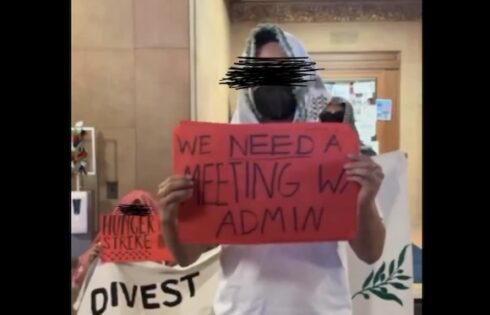
John Doe helped secure ‘the public interest’ of all students
John Doe’s lawyers want Pomona College to pony up a quarter-million dollars – “at least” – for their services fending off a botched Title IX proceeding against their pseudonymous client.
A trial judge who oversaw the student’s lawsuit against the elite Southern California school for nearly two years agrees that Doe deserves attorney’s fees from Pomona.
Exactly what he’ll get remains up in the air, but Los Angeles Superior Court Judge Mary Strobel’s “tentative decision” March 5 makes one thing clear: Title IX proceedings that are not fair to accused students violate “the public interest.”
A little history: Strobel ordered Pomona to remove Doe’s two-term suspension last fall after finding it denied him a fair hearing by not letting him even indirectly cross-examine his accuser.
The college also covertly applied a brand-new policy to Doe that was not in effect when he allegedly violated Jane Roe’s consent, and invented policy out of thin air by letting Roe answer questions in writing rather than coming to the hearing.
After getting slapped down by Strobel, Pomona attempted to re-try Doe with a different investigator but the same evidence and procedures that the judge found wanting. It justified this procedure by claiming that its original investigator’s self-described “findings” weren’t literally “findings.”
MORE: Pomona denied fair hearing to student by blocking cross-examination
It’s not clear whether Pomona is still going forward with a new Title IX proceeding, only that it told Strobel Feb. 9 that it had “set aside and vacated the findings” it issued against Doe from the original proceeding.
As the “successful party” in the case, Doe is due attorney’s fees under the law if his win “has resulted in the enforcement of an important right affecting the public interest.”
The judge said he satisfied the element that “the necessity and financial burden of private enforcement [of Doe’s rights] are such as to make the award appropriate,” because his action “transcended his personal pecuniary stake.”
Judge adds that, based on its arguments, "it seems [Pomona] did not fully understand how its Policy affects the fair hearing rights of accused students."
Full ruling:https://t.co/wivaE9bOl8— KC Johnson (@kcjohnson9) March 15, 2018
Strobel continued to the next element, the public interest:
There is an important right affecting the public interest that college students accused of sexual misconduct in Title IX proceedings receive a fair hearing. …
While the court’s ruling was based largely on the circumstances of the case, it enforced a right to a fair hearing in Title IX proceedings. That right is clearly important and it affects the public interest in fair Title IX proceedings.
And the final element, whether Doe’s action brought a “significant public benefit” to the public or a “large class of persons.”
Doe argued that he opened the door to all accused students in Title IX proceedings in California colleges – far beyond himself – to have the right to at least indirectly cross-examine their accusers.
MORE: Pomona ignores judge’s ruling, re-tries Doe with same approach
Strobel agreed, ticking through Pomona’s repeated refusals to follow or correctly interpret its own policies. “Under these circumstances, the court cannot conclude that the factual scenario was unique and unlikely to recur,” as Pomona claims, the judge said:
In future Title IX proceedings, accused students of the College are likely to face similar complications in questioning the [accuser] and other witnesses. Based on the procedural history discussed above, it seems reasonable to infer that this [order] will have assisted [Pomona] and its Title IX administrators in assessing whether or not accused students have received sufficient opportunity to question the [accusers]. Accordingly, this action conferred a significant benefit on a large class of persons.
The college’s only hope now is that Doe’s legal team – which included six attorneys at various points – can’t justify the fee award it’s seeking. Strobel notes the team’s invoices redacted all descriptions of lawyers’ work on the case, and didn’t bother to explain why they were redacted.
One of the interesting considerations for the next hearing is whether Doe’s team can justify its request for “a multiplier of 2.0.”
It submitted legal bills covering half of its requested fee award; if Strobel agrees to double that billing, it suggests the case was unusually risky for Doe’s legal team or Pomona engaged in serious shenanigans along the way.
Whatever the fee award, California colleges should take this lesson: Judges won’t look kindly upon your proceedings when you procedurally straitjacket the accused student.
MORE: To launch new biased proceeding, Pomona claims ‘findings’ aren’t ‘findings’
IMAGE: ImageFlow/Shutterstock
Like The College Fix on Facebook / Follow us on Twitter






Please join the conversation about our stories on Facebook, Twitter, Instagram, Reddit, MeWe, Rumble, Gab, Minds and Gettr.